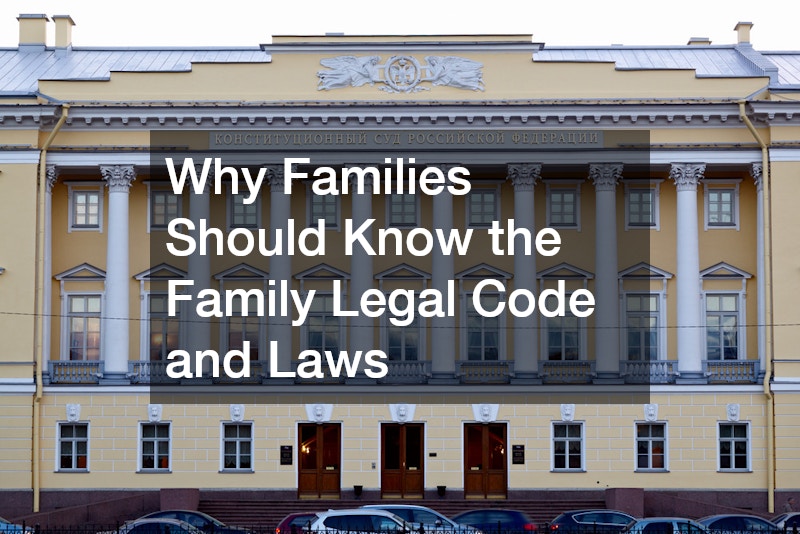
In today’s fast-paced society, understanding the family legal code and laws has become more important than ever. For families, being aware of their legal rights and obligations can mean the difference between harmony and discord.
What is the Family Legal Code?
Definition and Purpose
The family legal code refers to the set of laws and regulations that govern family-related issues such as marriage, divorce, child custody, and inheritance. Its primary purpose is to provide a structured framework within which family disputes can be resolved fairly and equitably.
This code acts as a guide for both legal professionals and families in making informed decisions regarding family matters. By offering clarity and direction, it aims to minimize conflicts and ensure that rights are upheld.
Understanding this code is crucial for navigating the complexities of family relationships legally. Knowing its provisions helps individuals and families safeguard their interests and make well-informed choices.
Key Components
One of the main components of the family legal code is the regulations around marriage, including requirements for validity and procedures for dissolution. These laws are central in shaping the rights and duties of spouses.
Child custody laws form another significant part of the code, determining the rights of parents and children in cases of separation or divorce. These laws prioritize the welfare and best interests of the child.
Inheritance laws, which dictate how assets are distributed after a person’s death, also fall under the family legal code. They ensure the orderly transfer of wealth and protect the rights of heirs and beneficiaries.
Why is it Important for Families to Understand These Laws?
Legal Protection and Rights
Understanding family laws is crucial for protecting the legal rights of each family member. It empowers individuals to assert their rights and secure justice in family-related matters.
Families with a solid grasp of these laws are better equipped to handle situations that might otherwise lead to exploitation or inequality. Legal awareness helps prevent infringements on rights by ensuring everyone is on equal footing.
Knowing such codes can be empowering, offering a sense of security and confidence in managing family issues. It also promotes accountability and responsibility within familial relationships.
Prevention of Legal Disputes
Disputes often arise when there is a lack of understanding or misinterpretation of family laws. By being informed, families can prevent unnecessary conflicts and maintain harmony.
A deep knowledge of the legal code allows families to anticipate potential disputes and address them proactively. This proactive approach can foster an environment of trust and cooperation.
Conflict resolution is much more straightforward when all parties are knowledgeable about their rights and obligations. Informed families are less likely to encounter misunderstandings that escalate into legal battles.
How Can Families Learn About the Family Legal Code?
Educational Resources
Numerous educational resources are available for families seeking to understand the family legal code. Online platforms and community workshops often provide valuable insights and information.
Many organizations offer free or low-cost resources, including seminars and webinars, aimed at educating individuals about family legal issues. These resources are designed to be accessible and user-friendly.
Books and online articles can provide a comprehensive overview of family laws. These resources can serve as starting points for families eager to enhance their legal knowledge.
Consulting Legal Professionals
While educational resources are helpful, consulting legal professionals is recommended for personalized advice. Lawyers and legal advisors can provide context-specific guidance that resource materials may not cover.
Family lawyers offer expertise and experience in handling various family law issues. Engaging a legal professional can ensure that families understand the nuances and complexities of applicable laws.
Consulting professionals may involve costs, but the investment is worthwhile for clarity and peace of mind. Legal experts can clarify ambiguous legal terminology and help navigate complex situations effectively.
What Are Common Misconceptions About Family Law?
Myths vs. Reality
Misconceptions about family law are prevalent and can lead to significant misunderstandings. One common myth is that family laws are static and do not adapt to evolving societal norms.
In reality, family laws are dynamic and frequently revised to reflect new societal standards and ethical considerations. Additionally, many individuals mistakenly believe that prenuptial agreements are only for the wealthy, when in fact, they are useful for anyone seeking clarity on financial matters in marriage.
Debunking these myths is crucial in helping families engage with the legal code truthfully. Understanding the reality behind these misconceptions encourages informed decision-making in family matters.
Impact of Misconceptions
When families operate based on incorrect assumptions about the law, it can lead to misguided decisions. These misconceptions might affect critical decisions about marriage, divorce, or child custody arrangements.
Incorrect beliefs can also result in inadequate preparation for legal proceedings, potentially jeopardizing family interests. Misunderstandings may lead to unnecessary conflicts or even legal disputes that could have been avoided with accurate knowledge.
Educating families about the empirical realities of family law is essential in overcoming these adverse effects. Clear and factual information can serve as a foundation for constructive family planning and sound decision-making.
How Does Family Law Vary Globally?
Comparative Analysis
Family legal codes differ significantly across countries and regions, reflecting diverse cultural and religious influences. For instance, while some countries recognize same-sex marriage, others do not, highlighting varied legislative approaches.
These differences encompass marriage laws, child custody regulations, and inheritance rights, among other aspects. Understanding these variations is critical for families who may move or have ties in multiple jurisdictions.
Global Implications
The global diversity in family legal codes has significant implications for expatriate families or those considering international relocation. Differing laws can affect facets of life such as marriage validity, parental rights, and property ownership.
Families living abroad need to be aware of how local legal frameworks interact with their domestic laws. Understanding these implications helps families mitigate challenges and ensure compliant living arrangements.

